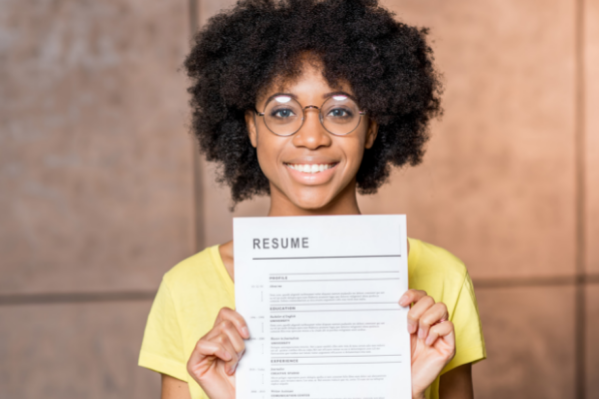In today’s competitive job market, students are often challenged to find part-time or summer work. Creating the perfect resume for a student job is the first step in this journey. A well-structured CV is essential to land your dream position and gain valuable work experience. In this guide, we’ll walk you through the steps to create the perfect resume for a student job.
1. Choose the Correct Format
When creating a resume for a student job, choosing the right format is crucial. The two most common formats are chronological and functional.
- Chronological: This format displays your employment history in reverse chronological order. This is a good option if you have relevant work experience or internships that you want to highlight.
- Functional: The functional format focuses on your skills and qualifications rather than your work history. This is ideal if you do not have extensive work experience, but have developed relevant skills through courses or extracurricular activities.
2. Customize your Resume
When it comes to resumes, one size does not fit all. Each application must have a unique resume tailored to the specific requirements of the position. Highlight skills, experience, and qualifications that are directly relevant to the job you are applying for.
3. Add a Strong Summary
Your resume should start with a strong summary or statement of purpose. This should be a short, compelling introduction that presents your goals and what you have to offer. Make sure it is specific to the position you are applying for.
4. Pay Attention to Education
For student employment resumes, your education section is often a major selling point. Include details such as your GPA, relevant courses, and any academic honors or awards you have received. This is your chance to demonstrate your dedication and commitment to learning to potential employers.
5. Emphasize Relevant Skills
Include the skills that are most relevant to the job you are applying for. These can be hard skills, such as programming languages, or soft skills, such as teamwork and communication. Be sure to provide specific examples of how you use these skills.
6. Show off Extracurricular Activities
Participating in extracurricular activities is a great way to make your student job resume stand out. Highlight any clubs, organizations, or volunteer activities that demonstrate your leadership, teamwork, or other relevant skills.
7. Quantify Performance
Use quantifiable achievements to demonstrate the impact you’ve had. Instead of saying you “increased sales,” say you “increased sales by 20% in three months.” Specifications can make a big difference.
8. Proofreading and Editing
Don’t underestimate the importance of proofreading. Spelling and grammatical errors can leave a negative impression. Have someone else look over your resume to catch any errors you may have missed.
9. Keep it Simple
If you want to showcase your achievements, it is crucial that you keep your resume concise. A one-page resume provides a clear and focused overview of your qualifications.
10. Regular Updates
Your student work CV is being worked on. Update it regularly as you gain experience, skills and achievements. Your resume should evolve with your academic and professional journey.
11. Use Action Verbs
When describing your work experience, use action verbs to effectively convey your achievements. For example, instead of saying you “helped a customer,” you can say you “provided excellent customer service.” Action verbs can add spice to your resume and help employers visualize your contributions.
12. Add Relevant Internships
Internships are valuable for students because they provide hands-on experience in your field. If you have completed an internship, be sure to include it on your resume, detailing the responsibilities and skills you gained during the experience.
13. Show Adaptability
Adaptability is a sought-after quality in today’s fast-paced labor market. Highlight any instances where you have successfully adapted to new challenges or learned quickly. Employers value candidates who can thrive in a diverse environment.
14. Include Professional References
Sections with professional references or citations thereof are available upon request. Make sure you contact your advisors in advance to obtain their approval and that they are willing to speak positively about your qualifications.
15. Customize your Cover Letter
When you apply for a job, it is customary to include a motivation letter with your CV. Make sure your cover letter complements your resume by explaining your skills, experience, and why you are a good fit for the specific position. Show dedication and enthusiasm by personalizing each cover letter to the job you are applying for.
Conclusion
In short, creating the perfect resume for a student job is a crucial step on the path to meaningful work. This is a living document that should evolve with your experience and skills. Remember that your resume reflects your potential, and by following these tips, you will be well prepared to impress future employers and take an important step toward achieving your career goals.
FAQs
1. What is the ideal length of a resume for a student job?
Ideally, a resume for a student job should be one page long. This ensures that it is concise and contains only the most relevant information. However, if you have extensive experience, a two-page resume may be acceptable.
2. Can I include high school information on my student job resume?
In general, you can leave out the high school information once you go to college or have some college experience. Focus on your higher education and any college-related achievements.
3. Should I put my GPA on my resume?
Recording your GPA is optional. If the value is above 3.0 or particularly strong, consider including it. If it is lower, you may choose to ignore it and focus on other strengths in your resume.
4. How do I ensure that my CV stands out to employers?
To stand out, tailor your resume to the specific position you are applying for. Highlight relevant skills, experience, and achievements. Use action verbs and provide quantifiable results to demonstrate your impact.
5. What should I do if I have no work experience or internship opportunities?
If you don’t have extensive work experience, focus on your education, courses, and relevant extracurricular activities. Transferable skills such as teamwork, leadership, and communication are emphasized.



